I accidentally discharged my samsung inr18650 25r, 20A battery to 1.5V. Is it permanently damaged? I quickly charged it back to 3.7v using 0.5-1A charger but I'm not able to figure out if there is a significant damage to cell or not.
-
1You've probably degraded the cell somewhat. Someone who knows more would have to tell you exactly how, but in my experiance abused batteries tend to see an increase in ESR. I'm not sure if the capacity goes down as well, or if the voltage drop just causes more current to be drawn from the cell. – Drew Jun 21 '22 at 04:58
-
You can test the cell by exercising it. Run it through a charge/discharge cycle and measure the capacity, measure the ESR, etc. – Drew Jun 21 '22 at 04:59
-
See here: https://electronics.stackexchange.com/questions/219222/is-draining-a-li-ion-to-2-5v-harmful-to-the-battery – Mike Jun 21 '22 at 05:03
1 Answers
Li-ion cells usually work in the range of 4.2V (while charging) to 3V (fully discharged). This voltage range MIGHT differ depending on the manufacturer and their cell chemistry. But this is a general data.
As for your question, discharging the cell to 1.5V just once may not have damaged your battery to the full extent. However, I am pretty sure the State of Health of the cell would have been considerably reduced.
To make myself clear, consider the figure below. When you discharged your cell to 1.5V, the inactive region (in Red) would have increased. This means that your cell can retain energy after a full recharge only for lesser amount of time than it was originally designed for.

And figuring out the damage done to your cell might not be very easy. To get a ballpark estimate, you could recharge it to 100% and see how long it lasts for. Then, compare it with the duration you used to get before the incident occured. You can also notice if there is excessive temperature being generated when the cell is being used or recharged. This is usually a good indicator that the Internal Resistance of a cell has increased, which usually happens due to a damage to the cell chemistry
Hope it answers your question. If you found it helpful, kindly upvote or accept the answer with a tick mark. ^^
References:
- Image courtesy: Battery University, https://batteryuniversity.com/article/bu-908-battery-management-system-bms.
- Some Battery Basics: https://batteryuniversity.com/article/bu-105-battery-definitions-and-what-they-mean
- 36
- 5
-
I will keep using the battery since it's holding the charge, later I will check the capacity using a capacity tester. But I think definitely some damage is done as the battery gets very slightly warm when discharging high current which earlier never happened. – Maaz Shahid Jun 21 '22 at 22:34